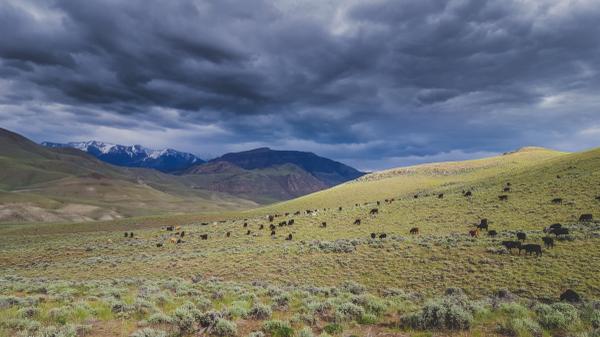
I never thought I’d say I’m happy about the bug goo on my windshield. I am actually so deeply grateful. There are some nights on the Salmon River Road when the mayfly hatch makes it almost impossible to see anything in the glare of oncoming headlights. The average summer day is not much better.
One time, in epiphany fueled by frustrated desperation I came up with a new solution for my windshield when my windshield washer was ineffective at cutting through the complex substantive bug gut matrix that coated the glass. Every day I start my morning with big cup of gunpowder green tea, and if I’m traveling it goes with me. Gunpowder has always been my favorite form, I think because it has a striking resemblance to curled-up dead insects (so it grosses out my kids). Then when I pour the hot water over them they metamorphose and hydrate into green tea leaves. Dad the magic man
I had only half finished the satisfying brew when I drove blindly into the glare of the rising sun on US Highway 93, the only way through these mountains to our nearest real town known as Salmon Idaho. My windshield was covered in green goo from the short trip down the valley. I pulled over and stopped the pickup in a pull off along the whitewater roar off the river. Ran the windshield fluid until the reservoir was dry with little success. Needing more water I looked around the bed of the truck for something to cart it from the nearby river. Nothing. I sadly pulled the lid off my insulated mug.
I looked in the mug one last time, took a final sip and threw the rest across the windshield. The windshield wipers immediately found purchase on the impenetrable slime as the acid of the strong tea immediately cut through the matrix. I didn’t even need to go get river water.
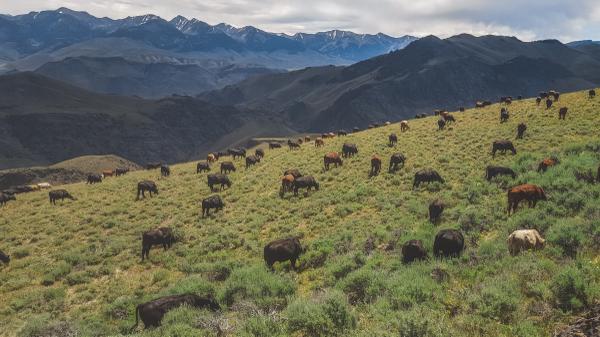 As I reflect on that morning, I am so very grateful. You see, this morning, I am in eastern South Dakota, driving through what was once the greatest, most highly functional and diverse grassland ecosystem in the world. It was not a sea but an ocean of grass. It had over 3000 plant and forb species on any given acre. Large native herds of bison and elk drifted like dark cloud shadows across this boundless Oceana.
As I reflect on that morning, I am so very grateful. You see, this morning, I am in eastern South Dakota, driving through what was once the greatest, most highly functional and diverse grassland ecosystem in the world. It was not a sea but an ocean of grass. It had over 3000 plant and forb species on any given acre. Large native herds of bison and elk drifted like dark cloud shadows across this boundless Oceana.
In a single manure pie of a bison, over 500 species of insects lived off the richness they found there.
Now, on a given hot summer night in eastern South Dakota, you may not have to clean your windshield. The bugs are gone. They’re gone especially in the spring as corn emerges from the ground in what was once some of the deepest topsoil in the planet.
I have a friend, Bill, who raises cattle there. He laments the loss of bugs. He actually misses the slime on his windshield. He’s ecologically minded and he knows that without bugs, the food chain is hopelessly broken.
There, the aerial spraying of herbicide over the prairie remnants that remain is very common. The remnants are considered waste ground, uneconomical for the conversion to corn or soybean cultivation. So these remnant grasslands of the once great grassland are used as grazing land but aerial spraying for weed control is nearly ubiquitous.
The pesticide drift from the adjacent cultivation of corn and soybeans would likely be enough. But nevertheless, spray aircraft intentionally fly over these tattered holdings of grass.
He confronted one of the pilots a few weeks ago about a particular piece of ground he observed his aircraft strafing. “Why are you even spraying that pasture?”
“Because it needed it,” the pilot responded. “Bill, do you realize that some of the pasture around here hasn’t even been sprayed to my knowledge yet?”
The pilot went on. “I just don’t understand it. I thought everybody had a spray program on their pastures. Now I’m finding that some of these pieces might not have even ever been sprayed. We need to get going on this.
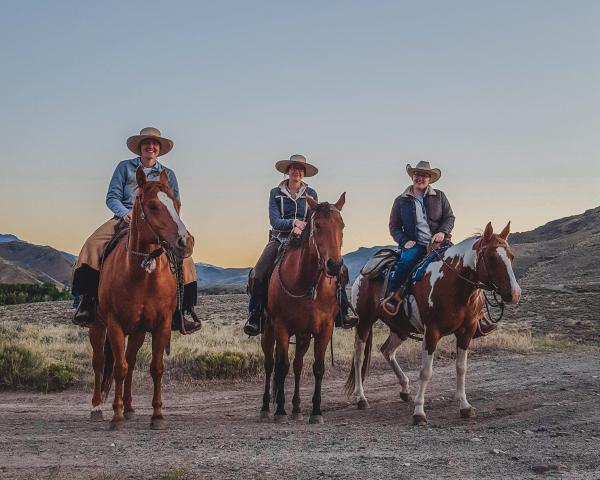
In an exercise in futility, Bill tried to explain to him how important bugs were and how he’d actually been missing them on his windshield at night.
The pilot didn’t get it. Instead, he began to talk about how he never gets bugs on his windshield of his airplane and even on the leading part of his wings.
The pilot went on: “So you don’t have to worry about me. I’m not killing any insects. When I fly over these fields I don’t have any insect mortality from striking my airplane so don’t blame me.”
Bill stopped, confused and a little blown away. This guy, the pilot actually thought Bill was lamenting the loss of bugs because the pilot was hitting him in the air with his airplane. He failed to make a connection at all with the fact that the herbicide he sprayed from his wing nozzles was wreaking havoc on every living thing in the field below him. It was why his plane no longer ran into bugs. There weren’t any.
Bill and I talked about how hard it is to know where to begin with people when they are absolutely and unquestioningly convinced of the harmlessness of coating the landscape we walk on with chemicals.
We both listed off a list of free magazines and Publications we get in the mail that espouse this sort of behavior. My favorite is ironically called the Range and Pasture Steward, published by Dow Chemical Company. It has lots of pretty pictures of very uniform green pastures- like lawns for cattle.
Middle America has been blanketed with propaganda pamphlets that fell not from the air but came in the US Mail about how safe ubiquitous chemical use is. And now it’s the chemicals that fall from the air from unknowing and misunderstanding crop duster pilots.
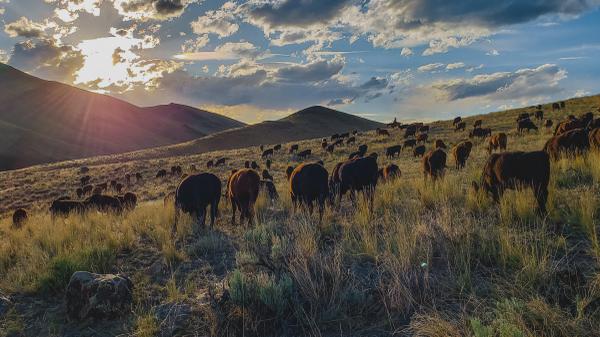 Â As I drive across the Prairie on my way back to the Rocky Mountains of Idaho I reflect a little bit on the incredible diversity and richness of the organic compounds that mixed with my green tea and dripped onto the pavement from my windshield. It was the nectar and fruit of a pristine world.
 As I drive across the Prairie on my way back to the Rocky Mountains of Idaho I reflect a little bit on the incredible diversity and richness of the organic compounds that mixed with my green tea and dripped onto the pavement from my windshield. It was the nectar and fruit of a pristine world.
As we travel through these mountains back home in Idaho, we are traversing across a wilderness. There’s no chemical culture here, and even little chemical agriculture in our remote and short growing season high valleys. The mountains are essentially as untouched as they were before Columbus landed in America.
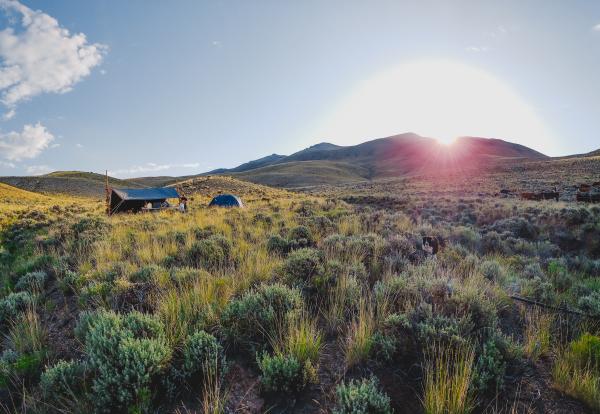 Our home, our landscape is a gift. The rugged mountains and our high elevation make gardening hard and row crop agriculture nearly impossible. It is an unsettled and unspoiled wilderness and I am grateful, especially because I am in the business of raising food and I couldn’t have a clear conscience about doing it any other way.
Our home, our landscape is a gift. The rugged mountains and our high elevation make gardening hard and row crop agriculture nearly impossible. It is an unsettled and unspoiled wilderness and I am grateful, especially because I am in the business of raising food and I couldn’t have a clear conscience about doing it any other way.
I’ll happily keep cleaning the bug goo off my windshields, thank you very much, and I’ll even use my green tea to do it. I’ll just have to make enough for both me and my windshield.
Thanks for partnering with us on these wild landscapes.
Happy trails.
“‹”‹”‹”‹”‹”‹”‹Glenn, Caryl, Cowboys, and Cowgirls at Alderspring Ranch

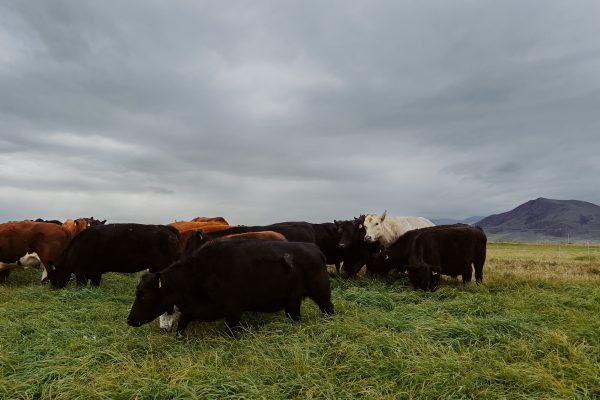
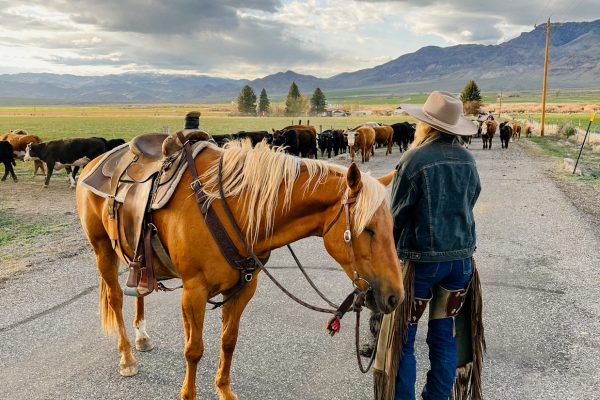
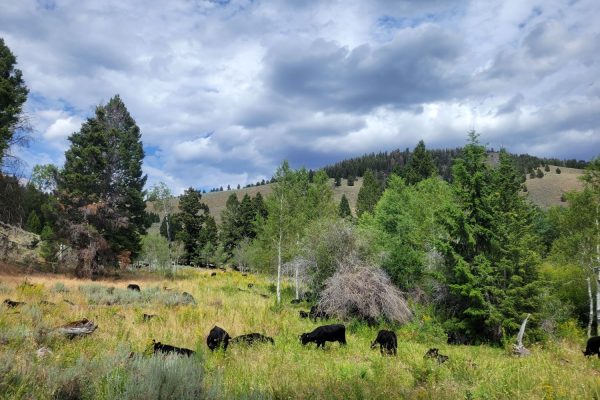



Leave a Reply